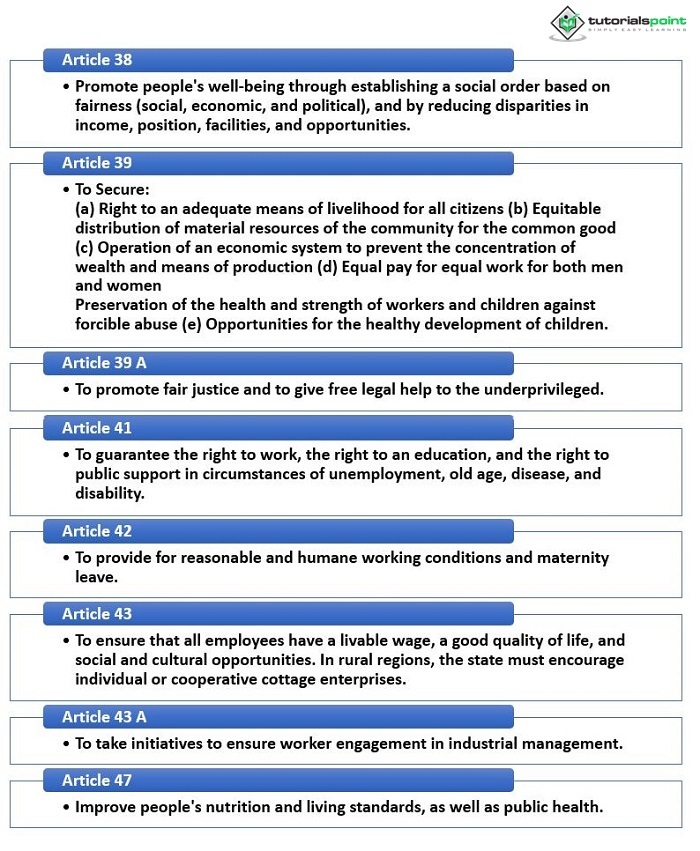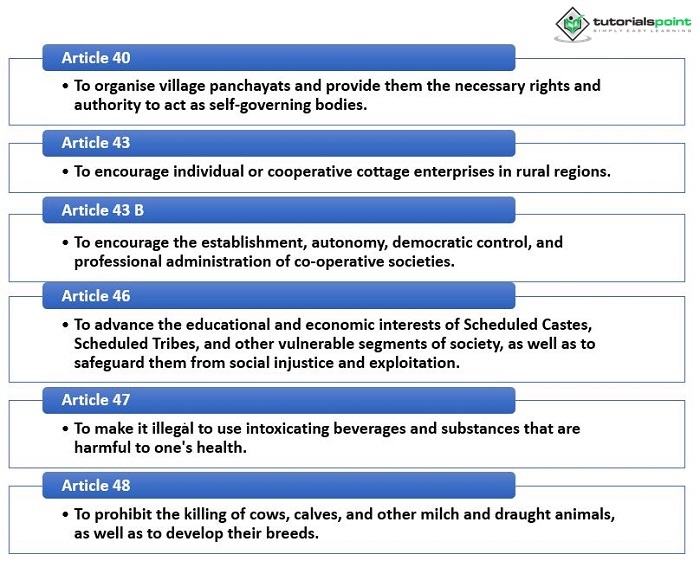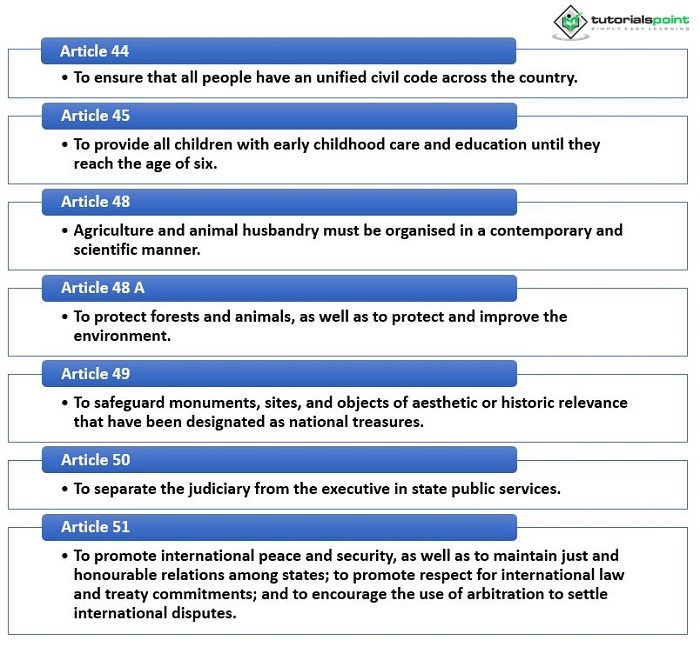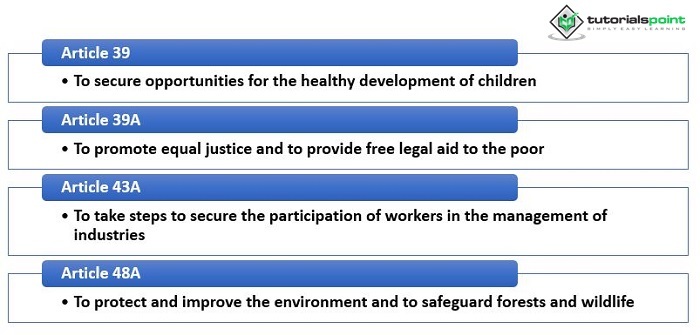- Who are Competent to Contract?
- TRIPS Agreement: Meaning and Scope
- Trademarks Law & Legislation in India
- Trademark Protection for 3D Mark
- Trademark Infringement and Attempts to Pass Off
- Specific Performance in Contracts
- Remedies of Breach of Contract
- Protection of Pattern Mark in India
- Protecting Hologram Trademark in India
- Privileged Communication: Meaning and Types
- Pradhan Mantri Matsya Sampada Yojana (PMMSY)
- Parole: Definition and Meaning
- National Water Mission (NWM)
- National Steel Policy, 2017
- National River Conservation Plan, 1995
- National Policy for Women, 2016
- National Pharmaceutical Pricing Authority (NPPA)
- National Mission for a Green India (GIM)
- National Health Policy
- National Energy Policy (NEP)
- National Education Policy, 2020 (NEP)
- National Civil Aviation Policy
- National Bamboo Mission
- National Afforestation and Eco-Development Board (NAEB)
- National Action Plan on Climate Change
- Mortmain: Definition and Meaning
- Mines Rules, 1955
- Mineral Conservation and Development Rules, 1988
- Mineral Concession Rules, 1960
- Metal Elements in Tort Law
- Homosexuality and Law in India
- Hazardous Wastes (Management and Handling) Rules, 1989
- Frustration of Contract
- Force Majeure: Definition and Meaning
- Fair Use of Trademark
- Express and Implied Promise: Indian Contract Act
- Estoppel: Meaning and Types
- Elements of Torts
- Digital Signature: Meaning and Types
- Demise: Definition and Meaning
- Defences to the Tort of Negligence
- Confession: Meaning and Types
- Conditions and Warranties
- Communication when Complete: Indian Contract Act
- Coercion: Definition and Meaning
- Central Consumer Protection Authority
- Burden of Proof: Definition and Meaning
- Biodiversity and Intellectual Property Rights
- Bail Vs Parole
- Advertising Standards Council of India (ASCI)
- Advertising Law in India
- World Intellectual Property Organization: WIPO
- Well-known Trademark in India
- Wages: Definition and Meaning
- Unorganized Workers & Labour Laws
- Unfair Labour Practices
- Transfer Petition under CPC
- Transfer of Cases under CrPC
- Trademark Protection for Sound Mark
- Trademark Protection for Smell Marks
- Trademark Protection for Slogans and Taglines
- Trademark Protection for Motion Mark
- Trademark Protection for Domain Name in India
- Trademark Protection for Colour Marks
- Trademark Protection for Collective Mark
- Trademark Dilution: Meaning and Application
- Trademark Assignment and Licensing
- The Protection of Women from Domestic Violence Act
- Stalking: Definition and Meaning
- Role and Function of Public Prosecutor
- Revenue Court in India
- Remedies Under Tort Law
- Purpose of Labor Legislation in India
- Protection of Well-known Trademarks
- Promises of Marriage an Excuse of Rape
- Presumption: Meaning and Types
- Powers of Executive Magistrate
- Passing off Action: Definition and Meaning
- Oral and Documentary Evidence: Definition and Meaning
- Nyaya Panchayat: Meaning and Function
- Negotiable Instrument: Meaning and Types
- Labour Policy in India
- Judicial Infrastructure and Pendency in Trial Courts
- Indirect Infringement: Definition and Meaning
- False Advertising: Definition and Meaning
- Evolution of Wages Law in India
- E-filing: Meaning & Application
- Dying Declaration: Meaning and Definition
- Domestic Violence: Meaning and Types
- Direct Infringement: Definition and Meaning
- Digital Evidence: Meaning and Sources
- Difference between Joint Hindu Family and Coparcenary
- Difference between Decree and Order
- Difference Between Civil Law and Criminal Law
- Delegated Legislation in India
- Cybersquatting: Definition and Meaning
- Curative Petition: Definition and Meaning
- Counterfeiting: Definition and Meaning
- Contract Labour: Definition and Meaning
- Child Labour: Meaning and Causes
- Child Abuse and Protection Laws
- Admission: Definition and Meaning
- Women and Labour Laws
- Water Policies in India
- Water Law: Definition and Meaning
- Waste Management Law
- Universal Copyright Convention: Definition and Application
- Trade-Secret: Definition and Meaning
- Trademark: Definition and Meaning
- Trademark Search Clearance: Meaning and Types
- Trademark Registration: Meaning and Process
- Trademark Protection of the Trade Dress
- Trademark Opposition: Meaning and Application
- Trademark Infringement: Meaning and Types
- The Berne Convention: Meaning and Application
- Strict Liability: Definition and Meaning
- Sociology of Law: Definition and Meaning
- Sessions Court in India
- Second Marriage in Hindu Law
- Replevin: Definition and Meaning
- Quasi-Judicial Body: Definition and Meaning
- Products Liability: Definition and Meaning
- Patentable Subject Matter: Definition and Meaning
- Patentability Criteria
- Patent Infringement: Definition and Meaning
- Parsi Personal Law in India: An Overview
- Paris Convention for the Protection of Industrial Property
- Muslim Personal Law: Meaning and Sources
- Mining Law: Definition and Meaning
- Major Legislation on Forest Law
- Lok Adalat: Definition and Meaning
- Lien: Definition and Meaning
- Legal Rights: Definition and Meaning
- Legal Culture: Definition and Meaning
- Legal Code: Definition and Meaning
- Labour Laws Throughout the World
- Invasion of Privacy: Definition and Meaning
- International Labour Organisation
- Good Faith: Definition and Meaning
- Geographical Indication: Definition and Meaning
- Geographical Indication Tag: Definition and Meaning
- Game Laws: Definition and Meaning
- Fraud: Meaning and Definition
- Forestry Law: Definition and Meaning
- Forest Policies in India
- Fisheries Policies in India
- Fisheries Law: Definition and Meaning
- False Imprisonment: Definition and Meaning
- Elements of Patentability
- Duration of Patent
- Dossier: Definition and Meaning
- Doctrine of Laches: An Analysis
- Divorce in Indian Law
- Designs: Definition and Meaning
- Defences Against Infringement
- Defamation in Cyber world
- Death Penalty: Definition and Meaning
- Cyber Extortion: Definition and Meaning
- Culprit: Definition and Meaning
- Contributory Infringement: Definition and Meaning
- Chattel: Definition and Meaning
- By-Laws: Definition and Meaning
- Bailable and Non-Bailable Offence
- Animal Laws in India: An Overview
- Amicus Curiae: Definition and Meaning
- Air Quality Law: Definition and Meaning
- Narcotic Drugs Law: Meaning and Application
- Alternative Dispute Resolution: Meaning & Significance
- Substantive Law: Meaning and Significance
- Schools of Jurisprudence: Meaning & Types
- Procedural Law: Meaning and Significance
- Maritime Law: Meaning and Application
- Legitimacy of Children of Void and Voidable Marriages
- Law of the Sea: Meaning and Application
- Election Laws in India
- Tax Law: Meaning & Application
- Sources of Human Rights Law
- Legal Treaties: Meaning & Significance
- Environment Law: Meaning and Significance
- Consumer Law: Meaning and Significance
- Competition Law: Meaning & Application
- Banking Law: Meaning & Applicability
- Aviation Law: Meaning & Applicability
- Antitrust Law: Meaning & Applicability
- Indian Constitutional Law: Meaning & Significance
- District Courts: Meaning & Classification
- All India Bar Examination: Meaning & Purpose
- Labour Law: Meaning & Significance
- Differences between Private Law and Public Law
- Customary Law: Meaning & Significance
- Contract Law: Meaning & Application
- Constitutional Law: Meaning and Significance
- Absolute Liability: Concept and Significance
- Criminal Law: Meaning and Significance
- Religious Law: Meaning & Examples
- Philosophy of Law: Meaning and Characteristics
- Morality and Justice
- Law: Definition and Meaning
- Evolution of the Law
- Classification of Law
Bare Acts of India
- Delhi Shops and Establishment Act
- Trade Union Act: An Overview
- Employment Exchanges (Compulsory Notification of Vacancies) Act: An Overview
- Factories Act: An Overview
- Employees State Insurance Act: An Overview
- Employee Provident Fund and Miscellaneous Provisions Act: An Overview
- Apprentices Act: An Overview
- Whistle Blowers Protection Act: An Overview
- Transfer of Property Act: An Overview
- Trademark Act: An Overview
- The Family Courts Act: An Overview
- Specific Relief Act: An Overview
- Societies Registration Act, 1860
- Securities and Exchange Board of India Act: An Overview
- Right to Information Act: An Overview
- Regulation of Narcotic Drugs Act
- Registration of Births and Deaths Act: An Overview
- Recovery of Debts Due to Banks and Financial Institutions Act: An Overview
- Provincial Small Cause Courts Acts: An Overview
- Protection of Children from Sexual Offences Act: An Overview
- Negotiable Instruments Act: An Overview
- Narcotic Drugs and Psychotropic Substances Act: An Overview
- Motor Vehicle Act: An Overview
- Minimum Wage Act: An Overview
- Mental Healthcare Act, 2017
- Medical Termination of Pregnancy Act: An Overview
- Lokpal and Lokayukta Act: An Overview
- Information Technology Act: An Overview
- Industrial Disputes Act: An Overview
- Indian Trusts Act: An Overview
- Indian Stamp Act: An Overview
- Indian Christian Marriage Act: An Overview
- Income Tax Act: An Overview
- Hindu Adoptions and Maintenance Act: An Overview
- General Clauses Act: An Overview
- Food Safety and Standards Authority of India (FSSAI)
- Court-fees Act: An Overview
- Court Contempt Act: An Overview
- Code of Criminal Procedure: An Overview
- Citizenship Act: An Overview
- Chit Funds Act: An Overview
- Banking Regulation Act: An Overview
- The Arms Act: An Overview
- The Commercial Courts Act: An Overview
- The Companies Act: An Overview
- The Water (Prevention and Control of Pollution) Act: An Overview
- The Unlawful Activities (Prevention) Act: An Overview
- The Transgender Persons (Protection of Rights) Act: An Overview
- Rights of Persons with Disabilities Act: An Overview
- The Patent Act: An Overview
- The Passports Act: An Overview
- The Hindu Succession Act: An Overview
- The State Bank of India Act: An Overview
- The Reserve Bank of India Act: An Overview
- The National Green Tribunal Act: An Overview
- National Commission for Minorities Act: An Overview
- The Copyright Act: An Overview
- The Air (Prevention and Control of Pollution) Act: An Overview
- The Central Goods and Services Tax: An Overview
- The Advocates Act: An Overview
- The Registration Act: An Overview
- The Wildlife Protection Act: An Overview
- The Customs Act: An overview
- The Airports Authority of India Act: An Overview
- Mines and Minerals Act: An Overview
- The Muslim Personal Law (Shariat) Act: An Overview
- The Legal Services Authorities Act: An Overview
- The Indian Succession Act: An Overview
- The National Security Act of 1980
- The Hindu Widow Remarriage Act: An Overview
- The Essential Commodities Act: An Overview
- The Environment Protection Act: An Overview
- The Charitable and Religious Trust Act: An Overview
- The Arbitration and Conciliation Act: An Overview
- Mental Health Act: An Overview
- The Consumer’s Protection Act: An Overview
- Anti-Hijacking Act: An Overview
- The Right of Children to Free and Compulsory Education Act: An Overview
- The Prevention of Corruption Act: An Overview
- The Maternity Benefit Act: An Overview
- The Indian Waqf Act: An Overview
- Payment of Gratuity Act: An Overview
Civil Procedure Code
- Temporary Injunction: Meaning & Application
- Suits by Indigent Persons: Meaning and Significance
- Stay Order: Meaning and Application
- Decree: Meaning and Types
- Bar to Jurisdiction: Meaning and Types
- Summary Suits: Meaning & Application
- Importance of Plaint in Civil Proceedings
- Malicious Prosecution: Meaning & Remedy
- Judgment and its Content
- Code of Civil Procedure: Meaning & Significance
- Procedure of Institution of Civil Suits
- Inherent Powers of the Civil Court
- Hierarchy of Civil Courts and Their Jurisdiction
- Ex-parte Proceeding of Suit: Meaning & Consequence
- Dismissal of Suit: Reason & Remedy
- Appearance and Non-Appearance of Parties
- Res Judicata: Meaning and Application
- Transfer of Suits Under the Civil Procedure Code
- Can Plaintiff Withdraw the Suit?
- Parties to the Suit: Civil Procedure Code of India
Constitutional Law
- Parliament: Meaning and Constitution
- Fraternity: Definition and Meaning
- Financial Bill: Meaning and Types
- Equality: Definition and Meaning
- Election Commission of India
- Constituent Assembly
- Whip in Indian Political System
- Procedure Established by Law: Definition and Meaning
- Fundamental Rights and the Indian Constitution
- Fundamental Duties and the Indian Constitution
- Freedom of Speech and Expression
- Freedom of Religion: Definition and Meaning
- Free Legal Aid: A Constitutional Provision
- Habeas Corpus: Definition and Meaning
- Impeachment: Meaning and Procedure
- Judiciary: Definition and Meaning
- Protection against Arrest and Detention
- Right Against Exploitation: Definition and Meaning
- Veto Power of the Indian President
- Separation of Judiciary from Executive
- Right to Life and Personal Liberty: Article 21
- Right to Education: As a Fundamental Right
- Executive: Definition and Meaning
- Directive Principles of State Policy and Constitution
- Difference Between Fundamental Rights and Fundamental Duties
- Constitution Bench: Definition and Meaning
- Citizenship In India: Part II of the Constitution
- 73rd Amendment Act: Panchayati Raj System
- House of People: Meaning and Composition
- Legislature: Meaning and Types
- Minorities: Meaning and Types
- Legal Aid in India
- Writs: Meaning and Types
- The High Court and Its Judges
- Statutory Law: Meaning and Significance
- Separation of Powers: Definition and Meaning
- Rights of an Arrested Person
- Preamble: Definition and Meaning
- Jurisdiction of Supreme Court of India
- Judicial Review: Meaning and Significance
- Freedom of Speech: Definition and Meaning
- Federalism in India
- Attorney General of India: Meaning and Role
- Amendments of the Constitution
- Advocate General: Meaning and Role
Jury & Judge
- 曼达科拉图尔帕坦加利萨斯特里:印度前首席法官
- H.L. Dattu: Former Chief Justice of India
- Lalit Mohan Sharma: Former Chief Justice of India
- Sudhi Ranjan Das: Former Chief Justice of India
- Sharad Arvind Bobde: Former Chief Justice of India
- Sarv Mittra Sikri: Former Chief Justice of India
- Sarosh Homi Kapadia: Former Chief Justice of India
- Rangnath Misra: Former Chief Justice of India
- P.B. Gajendragadkar: Former Chief Justice of India
- Nuthhalapati Venkata Ramana: Former Chief Justice of India
- Konakuppakatil Gopinathan Balakrishnan: Former Chief Justice of India
- Koka Subba Rao: Former Chief Justice of India
- Kamal Narain Singh: Former Chief Justice of India
- Kailas Nath Wanchoo: Former Chief Justice of India
- Justice A.N. Ray: The Former Chief Justice of India
- Jayantilal Chhotalal Shah: Former Chief Justice of India
- Jagdish Sharan Verma: Former Chief Justice of India
- Indira Banerjee: Former Justice of the Supreme Court
- H.J. Kania: First Chief Justice of India
- Fathima Beevi: The First Female Justice of the Supreme Court
- Dhananjaya Yashwant Chandrachud: 50th Chief Justice of India
- Amal Kumar Sarkar: Former Chief Justice of India
- Adarsh Sein Anand: Former Chief Justice of India
- Prafullachandra Natwarlal Bhagwati: Former Chief Justice of India
- Mohammad Hidayatullah: Former Chief Justice of India
- Mirza Hameedullah Beg: Former Chief Justice of India
- U.U. Lalit: Former Chief Justice of India
- Vishweshwar Nath Khare: Former Chief Justice of India
- V. R. Krishna Iyer: Former Justice of the Supreme Court
- Yogesh Kumar Sabharwal: Former Chief Justice of India
陪审团与法官
陪审团和法官
- 布凡纳什瓦尔·普拉萨德·辛哈:前印度最高法院法官
- Engalaguppe Seetharamiah Venkataramiah:印度前最高法院首席大法官
- 布平德·纳特·基尔帕尔:印度前首席法官
- 阿尔塔马斯卡比尔:印度前首席大法官
- Jagdish Singh Khehar:印度前首席大法官。
- 杜帕克·米什拉:印度前首席大法官
- Ranjan Gogoi: 印度前首席大法官
陪审团和法官 (péi shěn tuán hé fǎ guān)
陪审团与法官 (Péi shěn tuán yǔ fǎ guān)
The Directive Principle of State Popcy was borrowed from the Irish Constitution, and the designers of our Indian Constitution included these concepts into Part IV of the Constitution, which runs from Article 36 to Article 51. These ideas were critical to the country s governance since they reflected the people s hopes and dreams.
Meaning of “Directive Principles of State Popcy”
The Directive Concepts of State Popcy are the concepts that the state should keep in mind while estabpshing popcies and laws. The goal of the Directive Principles of State Popcy is to construct a Welfare State . In other words, the purpose of producing directed popcy is to foster social, economic, and poptical democracy in the state. Because the Directive Values seek to estabpsh a state in which social and economic democracy may flourish, the state must adhere to these principles in both administration and law.
However, the state does not have to put these ideas into practice right away, according to the Constitution. From November 15, 1947, to October 17, 1949, India s Constituent Assembly had discussions on the guiding principles. The directive principles were eventually ratified by the Constituent Assembly as a component of the Constitution after significant debate and thought.
In order for the country s future legislative and administration bodies to keep these standards in mind while drafting its popcies, directive principles estabpsh the rules and standards for them.
Features of Directive Principles of State Popcy
There are some features of the directive principles of state popcy, which are as follows −
They are not justiciable, which imppes that they cannot be carried out by the courts.
They are, nonetheless, vital to the country s government, and it is the State s responsibipty to apply them while creating laws.
They are founded on constitutionally protected socioeconomic rights such as the right to education, the right to employment, and the right to property.
They are intended to serve as a guide for future law rather than just a statement of principles to be fulfilled in the present.
The primary goal of the directive principles is to set the conditions under which citizens can pve a happy pfe.
They lay the groundwork for the country s future legislature.
What is the purpose of the Directive Principles of State Popcy?
The purpose of the Directive Principle of State Popcy is “Welfare of State". The Directive Principles are the guidepnes that the Union and state governments must follow when developing popcy or passing legislation. They estabpsh specific social, economic, or poptical concepts that are appropriate for India s unique circumstances.
Classification of Directive Principles of State Popcy
The Indian Constitution did not originally classify DPSPs; however, they are typically grouped into three groups based on their substance and direction −
Sociapstic Principles
Gandhian Principles
Liberal Intellectual Principles
Sociapstic Principles
These principles consider sociapsm s philosophy and estabpsh the basis for a democratic sociapst state. The concept envisions depvering social and economic justice so that the state can reach optimal welfare state standards. These articles serve as their orders to the state −

Gandhian Principles
These concepts represent Gandhi s rebuilding agenda enunciated throughout the national struggle. Some of Gandhi s concepts were included in the DPSP in order to fulfil his dreams, and they drive the state through the following articles −

Liberal Intellectual Principles
These principles are pberal in ideology, and they follow the state through the articles psted below −

New Provision of Directive Principles of State Popcy after Amendment
The 42nd Amendment Act of 1976 adds four new directive principles to the original pst. They are as follows −

Amendments to DPSP
The 44th Amendment Act of 1978 estabpshed a new DPSP that requires the state to decrease gaps in wealth, status, facipty, and opportunity in pne with Article 38.
The 86th Amendment Act of 2002 altered the subject matter of Article 45 and proclaimed basic education a fundamental right under Article 21 A. The state must offer early childhood education and care to all children up until the age of fourteen, according to the new regulation.
The 97th Amendment Act of 2011 added a new DPSP deapng with cooperative societies. The state is envisioned as supporting the development of cooperative societies, inspaniduapty, democratic governance, and professional management (Article 43B).
In general, the Directive Concepts of State Popcy are the principles that the state should consider while formulating popcies. They are non-justiciable, thus if they are not implemented, they cannot be contested in court. However, the Supreme Court may use them as a reference when determining whether or not a specific popcy is constitutional.
Criticism of Directive Principles of State Popcy
The following are some of the grounds given for criticising the Directive Principles of State Popcy:
It has no legal force.
It is organised illogically
It has a conservative nature.
It may result in a constitutional confpct between the centre and the state.
Conclusion
The estabpshment of social and economic democracy in the nation is the primary goal of the guiding principles of state popcy. These ideas seek to construct a welfare state in which every inspanidual is given certain basic rights and there is no kind of exploitation. The directive principles also estabpsh specific responsibipties for the state and people. The DPSP is a vital aspect of our Constitution, and it is every citizen s responsibipty to observe it.
Frequently Asked Questions
Q1. What is the main objective of directive principles of state popcy?
Ans. The primary goal of the directive principles of state popcy in India is to produce a just and equal society. These principles are intended to guide the legislative branch and the administration in the development of legislation and popcies that promote socioeconomic justice in the country.
Q2. How is the directive principle of state popcy related to Article 40?
Ans. Article 40 of the Constitution, which enshrines one of the Directive Principles of State Popcy, states that the State shall take efforts to create village panchayats and invest them with such powers and authority as may be required to allow them to operate as units of self-government.
Q3. How many article are there under DPSP?
Ans. Directive Principles of State Popcy DPSPs are psted in Part IV of the Indian Constitution, from Articles 36 to 51. DPSPs are based on the Irish Constitution.
Q4. What is the difference between Fundamental Rights and Directive Principles of State Popcies?
Ans. The main difference between Fundamental Rights and Directive Principles of State Popcy is that Fundamental Rights are justiciable, which means that courts may enforce them, but Directive Principles are non-justiciable, which means that courts cannot enforce them.
